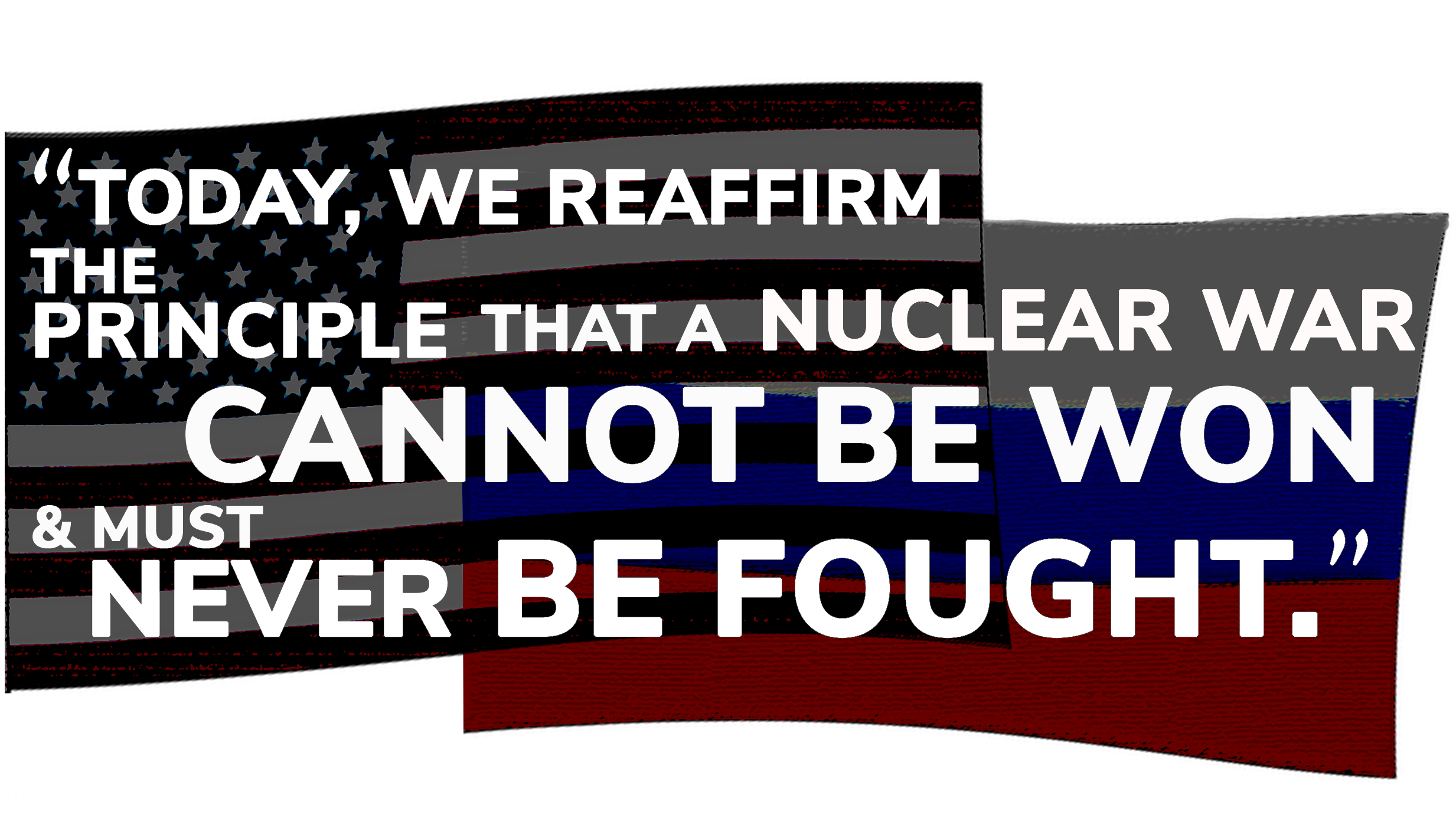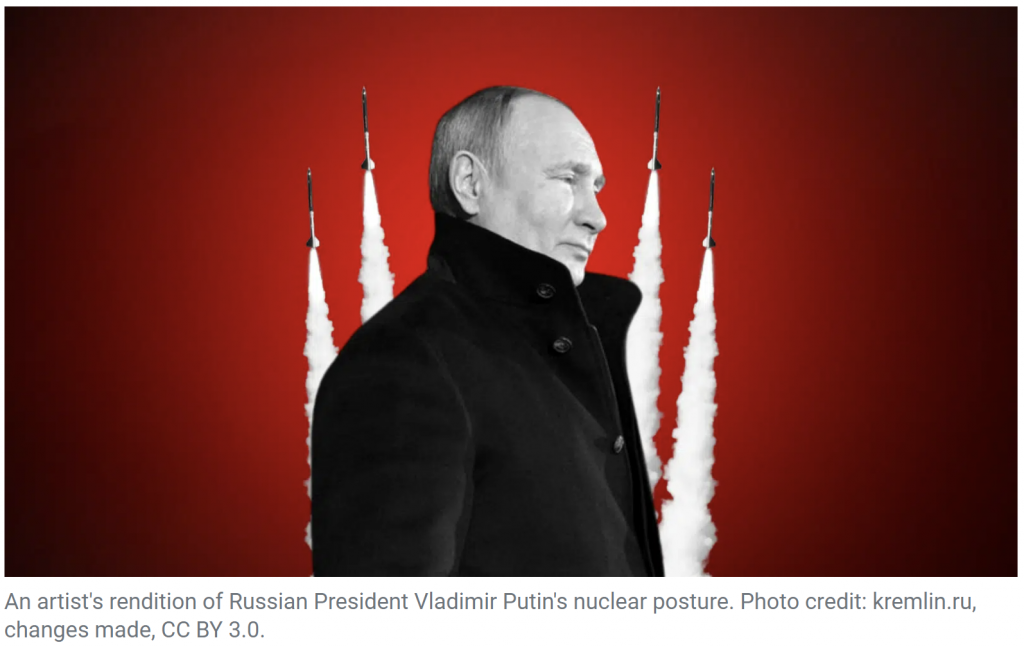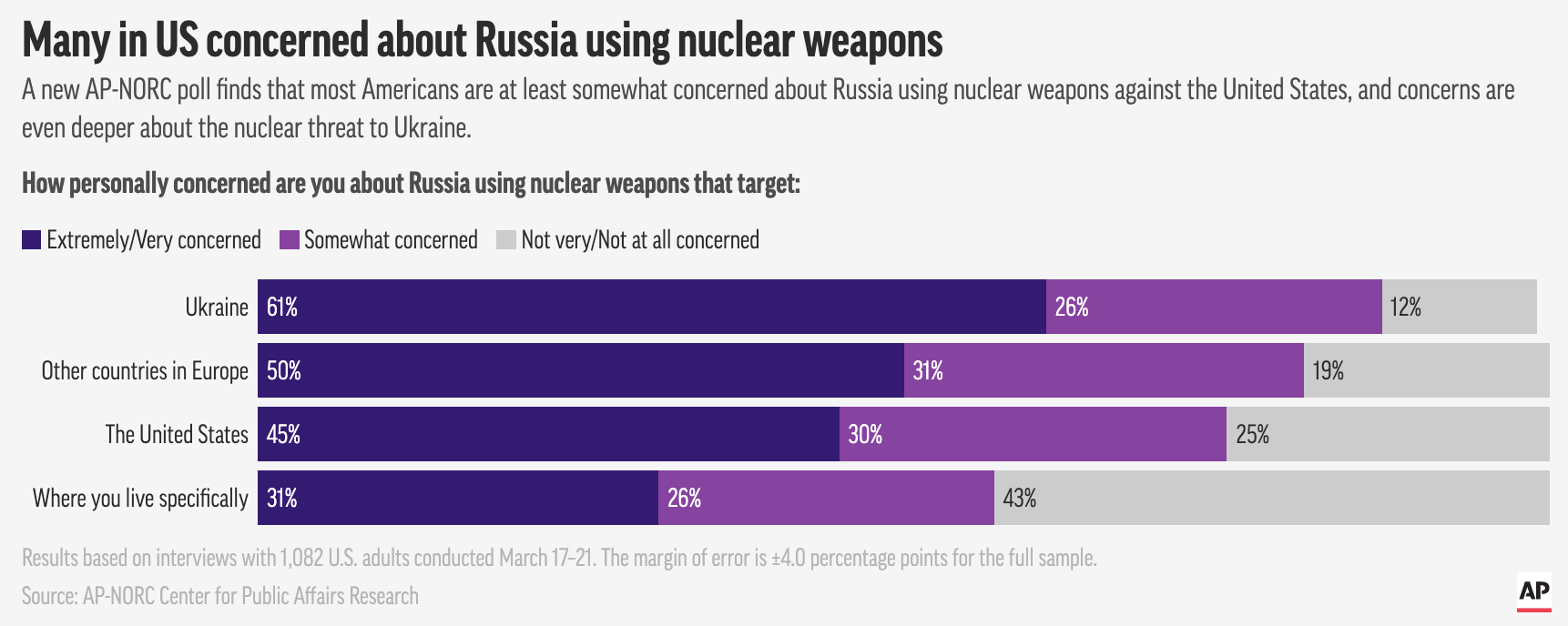Ukraine war fears as UK’s nuclear plants vulnerable to attack in ‘nightmare scenario’
The UK’s nuclear plants could be on the frontlines of any conflict with Russia and would be vulnerable to an attack in any future conflict: “If a nuclear power plant was hit by a missile in the UK, Europe or Ukraine, there could be catastrophic widespread radioactive contamination.” – Dr. Paul Dorfman, Associate Fellow, Science Policy Research Unit (SPRU), Sussex Business School, University of Sussex.
By MATTHEW DOOLEY | July 3, 2022 express.co.uk
The war in Ukraine has put civilian nuclear plants on the frontline of a military conflict for the first time in history, Dr Paul Dorfman has claimed that the conflict in Ukraine has shown that the UK’s own civilian nuclear infrastructure is at risk of attack, and likely cannot be defended.
Dr Dorfman is Associate Fellow, Science Policy Research Unit (SPRU), Sussex Business School, University of Sussex. He has worked with both the Government as well as European Governments on various areas of nuclear policy.
Following the shelling at Zaporizhzhia nuclear power plant in Ukraine, the largest in Europe, Dr Dorfman said he “didn’t sleep for a few days”.
Dr Dorfman warned that if a nuclear reactor was attacked it could be “catastrophic”. He warned of a “nightmare scenario” which could range from a core meltdown to a widespread release of radioactive material.
NATO to dramatically increase forces on high alert to over 300,000 from 40,000 amid Russia threat
Units deployed across eight eastern and southeastern NATO countries to deter Russia hostilities will rise in size from 1,000-strong battlegroups to brigades, which comprise around 3,000-5,000 troops with more war-fighting equipment in Latvia, Lithuania and Estonia.
By Deborah Haynes, Sky News | June 27, 2022 news.sky.com
NATO will significantly increase the number of forces on high alert to over 300,000 from 40,000 as part of the biggest overhaul of the alliance’s defences since the Cold War.
With Vladimir Putin‘s invasion of Ukraine changing the security environment across Europe, the head of the alliance also confirmed that allies will expand troop deployments in NATO countries that sit closest to Russia.
Ukraine is not a member of NATO.
The decisions will be set out at a landmark summit this week in Madrid.
“Together, this constitutes the biggest overhaul of our collective deterrence and defence since the Cold War,” Jens Stoltenberg said, in a briefing at NATO headquarters in Brussels on Monday.
He said the 30-member alliance is expected to consider Russia to be “the most significant and direct threat to our security”.
Will Putin go nuclear? An updated timeline of expert comments from the Bulletin of the Atomic Scientists
“The risk of global nuclear war has practically disappeared,” Mikhail Gorbachev, the last leader of the Soviet Union, said in his 1991 Nobel Prize acceptance speech, even though Russia and the United States retained their massive nuclear arsenals.
By Susan D’Agostino, François Diaz-Maurin | June 6, 2022
Three decades later, nine countries are members of the nuclear club. Even so, many were reassured last summer when Russian President Vladimir Putin and US President Joe Biden during a Geneva summit reiterated the Gorbachev-Regan statement that “a nuclear war cannot be won and must never be fought.”
But ever since Russia’s late-February invasion of Ukraine, political leaders, nuclear arms control experts, and world citizens have tried to answer some version of the question: Will Putin use nuclear weapons in his war in Ukraine?
The utterances by individuals of note listed below might have been responses to this question. These statements, arranged chronologically, offer a still-unfolding existential narrative on whether nuclear war may or may not be imminent.
To Prevent Nuclear Annihilation, Resume Negotiations Immediately
The war in Ukraine shows the urgency of nuclear arms control
“It is either the end of nuclear weapons, or the end of us,” wrote 16 winners of the Nobel Peace Prize in an open letter in March that has since been signed by more than a million people.
BY SCIENTIFIC AMERICAN EDITORS | scientificamerican.com
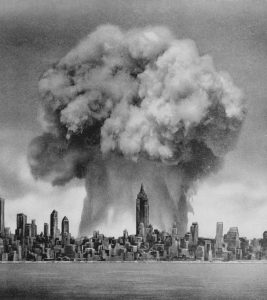
Decades after the end of the cold war and mere months after the U.S., Russia and other members of the United Nations Security Council agreed that “a nuclear war cannot be won and must never be fought,” the specter of nuclear apocalypse again looms over humankind.
Western powers contemplating intervention in the war in Ukraine “must know that Russia will respond immediately, and the consequences will be such as you have never seen in your entire history,” President Vladimir Putin warned in a not so veiled threat of nuclear retaliation on February 24, the day Russia invaded Ukraine. Days later he raised the alert levels of Russian nuclear forces.
As Finland Nears NATO, Russia Flags ‘Full-Fledged Nuclear War’ Risk
Russia has railed against NATO expansion towards its borders and used the presence of the alliance near its borders as one of the justifications for its invasion of Ukraine.
BY BRENDAN COLE |
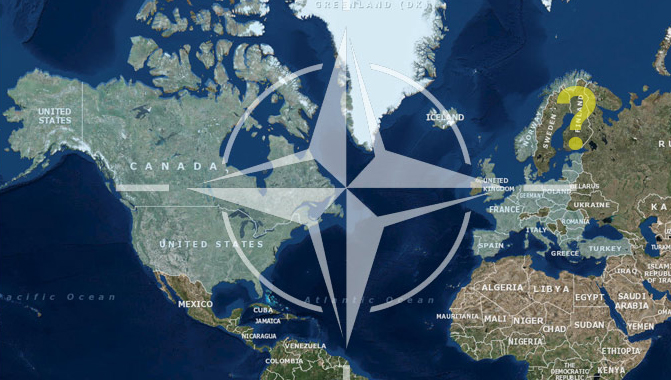
Former Russian president Dmitry Medvedev has warned of the risk of “open conflict” between Moscow and NATO, which could escalate into a nuclear war, just as Finland announced plans to join the alliance.
Although he did not mention Russia’s neighbor by name, Medvedev, who is the deputy chairman of his country’s Security Council, raised the threat of nuclear war in a Telegram post which was published less than an hour after Helsinki announced its NATO intentions.
The Russian foreign ministry said on Thursday that, following Finland’s move, it will be “forced to take retaliatory steps, both of a military-technical and other nature to stop the threats to its national security,” RIA Novosti reported.
Earlier, Medvedev had described how there was “endless talk by foreign analysts about NATO’s war with Russia,” which in his view was “becoming more and more forthright.”
Eventually, our nuclear luck will run out
Putin might not use nukes. But someday, someone will.
“The war in Ukraine should, if nothing else, push us to take stock of the inhuman policies that keep total destruction a perpetual option. If we can’t act now, when the risk of the worst-case scenario has become horrifyingly real, will we ever act?”
BY DAVID FARIS | April 28, 2022 theweek.com
As fears of escalation in Ukraine increase with every day of Russia’s deranged invasion, the specter of nuclear war spreads over the planet. Will Russian President Vladimir Putin authorize the use of “tactical” nuclear weapons, most of which are stronger than the nightmare devices dropped on Japan in 1945? The risk of annihilation remains low at any given moment, but the longer we allow states to threaten one another with this kind of eradication, the more likely it is we’ll eventually stumble into a catastrophic nuclear event. Maybe it won’t happen this year, this war, or this century. But in the long-term, in a world with nukes, nuclear war is inevitable.
Ukrainians shocked by ‘crazy’ scene at Chernobyl after Russian pullout reveals radioactive contamination
“What we see [in Chernobyl] is a vivid example of outrage at a nuclear facility. It is the responsibility not only of Ukraine, but of the whole world, to keep the stations safe. The whole world watched live as tanks fired at nuclear power units [in Zaporizhzhia]. This history must never repeat itself.” – Ukrainian Interior Minister Monastyrskyy
BY Vasco Cotovio, Frederik Pleitgen, Byron Blunt and Daria Markina, CNN | April 9, 2022 cnn.com
Chernobyl, Ukraine (CNN) The sudden ear-piercing beep of a radiation meter fills the room as a Ukrainian soldier walks in. This is where Russian soldiers were living at the Chernobyl nuclear power plant, and radiation levels are now higher than normal.
“They went to the Red Forest and brought radioactive material back with them on their shoes,” soldier Ihor Ugolkov explains. “Other places are fine, but radiation increased here, because they were living here.”
Nuclear fears in US amid Russia-Ukraine war, says a new poll
Close to half of Americans say they are very concerned that Russia would directly target the U.S. with nuclear weapons, and an additional 3 in 10 are somewhat concerned about that, according to the new poll from The Associated Press-NORC Center for Public Affairs Research. Russian President Vladimir Putin placed his country’s nuclear forces on high alert shortly after the Feb. 24 invasion.
BY BEN FOX and HANNAH FINGERHUT | March 28, 2022 APNEWS apnews.com
Americans fear being drawn in
Russia’s war on Ukraine has most Americans at least somewhat worried that the U.S. will be drawn directly into the conflict. Now a new poll says there is also anxiety among Americans that they could be targeted with nuclear weapons.
Nearly 50% ‘very concerned’
Close to half of Americans in the poll say they are very concerned that Russia would directly target the U.S. with nuclear weapons, and an additional 3 in 10 are somewhat concerned about that.
What to know about the threat of nuclear war
“Special alert is the Russian military’s highest level of alert. So Putin’s statement is serious. But it should also be noted that Russia, France, the United Kingdom and of course, the United States maintain almost 2,000 nuclear warheads on various states of high alert.”
By Paige Sutherland & Meghna Chakrabarti | March 14, 2022 wbur.org

On January 3rd of this year, the world’s five largest nuclear powers, including Russia, issued the following joint statement:
“A nuclear war cannot be won and must never be fought.”
But, one month later, Russian troops invaded Ukraine.
It’s a move that alarmed the world, and seems to fly in the face of that statement, which also says:
“Nuclear weapons — for as long as they continue to exist — should serve defensive purposes, deter aggression, and prevent war.”
On Point: Russia, and the U.S.’s nuclear arsenal. Where are the weapons, how are they controlled and what could trigger a launch?
FULL/ORIGINAL ARTICLE
THE INTERCEPT: “CONGRESS IS ALREADY BLOWING A KEY CHANCE TO REFORM NUCLEAR WEAPONS POLICY”
The national security establishment and its corporate allies dominate Congress’s new nuclear weapons commission.
“While the world draws closer to nuclear war than it has in decades, perhaps ever, Russia’s aggression in Ukraine has given lawmakers a unique opportunity to scrutinize the massive nuclear modernization effort currently underway in the U.S. — the largest since the Cold War. But last week, when Congress announced most of its appointees to a new commission designed to do just that, it was business as usual. A former senator-turned-defense contractor lobbyist and a senior executive for BP were among the picks.”
By Sara Sirota | March 24, 2022 THE INTERCEPT theintercept.com
SPEAKING TO CNN on Tuesday, Dmitry Peskov, a spokesperson for Russian President Vladimir Putin, reiterated a well-known tenet of Russian military doctrine: The country could resort to the use of nuclear weapons if it perceives an “existential threat.” Russian Deputy Ambassador to the United Nations Dmitry Polyanskiy made a similar comment to Sky News, saying that nuclear war could be a possible outcome if the country is “provoked” or “attacked” by NATO. Pentagon press secretary John Kirby called Peskov’s comments to CNN “dangerous,” saying: “It’s not the way a responsible nuclear power should act” — begging the question of whether there is such a thing as a “responsible” nuclear power.

